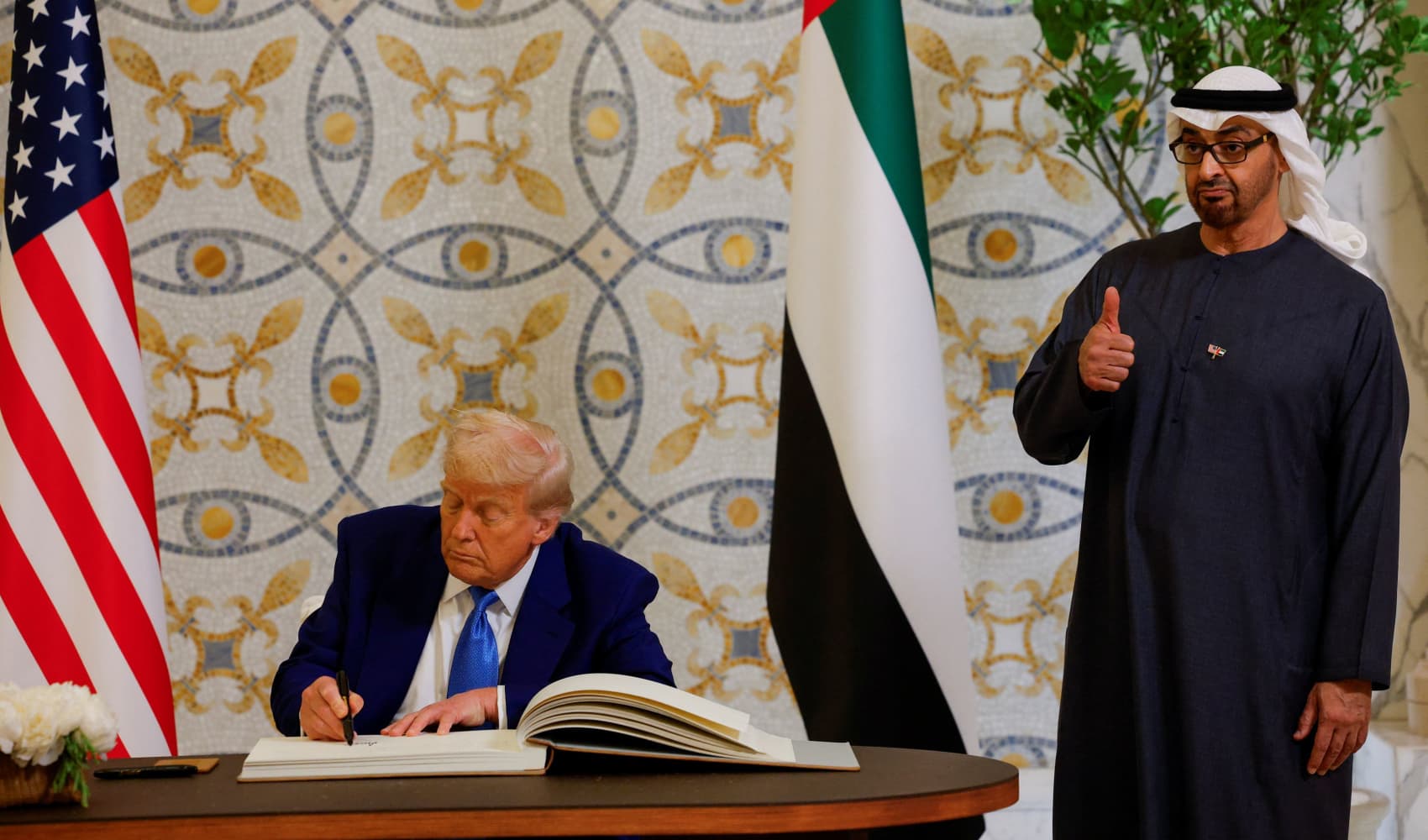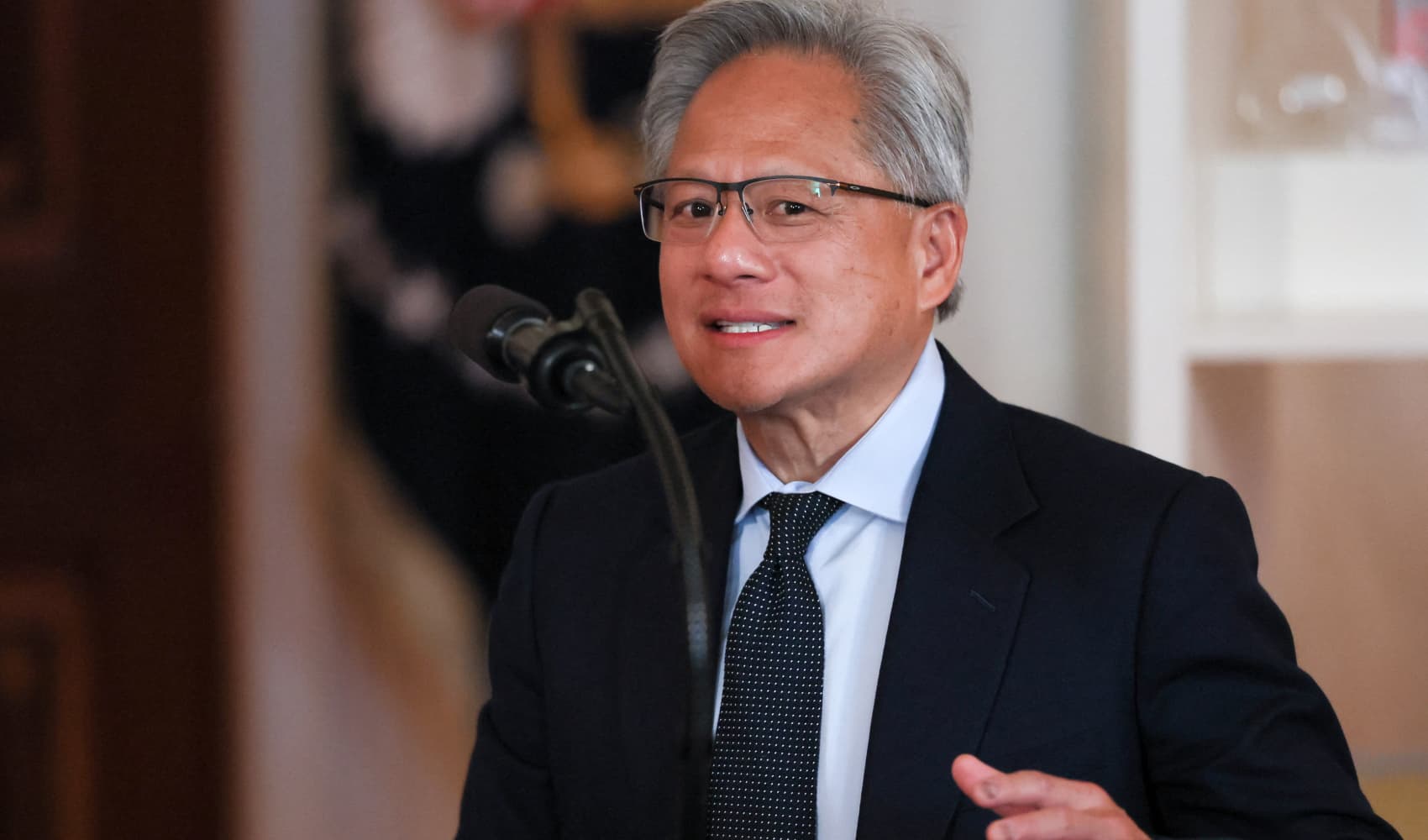US, UAE AI Deal: What it Means for the Future of AI
US and UAE Ink Deal: Advanced AI Chips Heading to the Emirates?
Introduction: A New Era of AI Collaboration
Imagine a world where artificial intelligence (AI) isn't just the stuff of science fiction, but a driving force behind innovation and progress. Well, that world is rapidly becoming a reality, and the United Arab Emirates (UAE) is making a bold move to be at the forefront. President Trump recently announced an agreement that could pave the way for the UAE to acquire some of the world's most advanced AI chips from American companies. But what does this mean for both countries, and for the future of AI as a whole? Let's dive in and explore the details of this groundbreaking agreement.
The AI Ambitions of the UAE
The UAE isn't just dipping its toes into the AI waters; it's diving headfirst! The nation has made significant investments in building a robust AI infrastructure, with the clear goal of becoming a global AI hub. But why is the UAE so keen on AI? And what are its plans for this powerful technology?
Why AI?
The UAE recognizes the transformative potential of AI across various sectors, from healthcare and transportation to finance and education. AI can help streamline operations, improve efficiency, and unlock new opportunities for growth and development. Think smart cities, personalized medicine, and autonomous vehicles – the possibilities are virtually limitless.
The Vision for an AI Hub
The UAE envisions itself as a leading center for AI research, development, and deployment. This includes attracting top talent, fostering innovation, and creating a thriving ecosystem for AI startups and businesses. The country has already launched several initiatives to support this vision, including AI-focused research centers, accelerators, and funding programs.
US Restrictions on Chip Exports: A Major Hurdle
For the UAE's AI ambitions to take flight, it needs access to the most advanced AI chips. However, U.S. national security regulations on chip exports have posed a significant challenge. Why is the US so cautious about where these powerful chips end up?
The National Security Concerns
The U.S. government is understandably concerned about the potential misuse of advanced technology, particularly in the hands of countries or entities that could pose a threat to national security. AI chips can be used for a wide range of applications, including military and intelligence purposes, which raises concerns about proliferation and misuse.
Navigating the Regulatory Landscape
The regulatory landscape surrounding chip exports is complex and constantly evolving. Companies must navigate a web of regulations and licensing requirements to ensure compliance. This can be a time-consuming and costly process, potentially hindering the UAE's access to the chips it needs for its AI initiatives.
Trump's Announcement: A Game Changer?
President Trump's announcement that the U.S. and UAE are working on a path to allow Abu Dhabi to purchase American-made semiconductors is a significant development. Is this a sign that the U.S. is willing to ease its restrictions on chip exports to the UAE?
Details of the Agreement
While the details of the agreement are still being worked out, the fact that the two countries are actively seeking a solution is a positive sign. Trump described the deal as a "very big contract," suggesting that it could involve a significant volume of chip sales.
Potential Benefits for the UAE
This agreement could be a major boost for the UAE's AI ambitions. Access to advanced American-made chips would give the country a significant competitive advantage in the global AI race. It would also help attract more investment and talent to the UAE's AI sector.
The Role of American Chip Companies
American chip companies stand to benefit from this agreement as well. It would open up a new market for their products and help them maintain their dominance in the AI chip industry. But who are the key players in this market, and what challenges might they face?
Key Players in the AI Chip Market
Companies like NVIDIA, Intel, and AMD are leading the charge in the AI chip market. These companies invest billions of dollars in research and development to create cutting-edge chips that can power the most demanding AI applications.
Challenges and Opportunities
While the UAE agreement presents a significant opportunity for American chip companies, they may also face challenges. These include navigating regulatory hurdles, ensuring compliance with export controls, and managing potential competition from other chip manufacturers.
The Implications for Global AI Development
This agreement could have far-reaching implications for the global AI landscape. It could accelerate the development and deployment of AI technologies around the world and foster greater collaboration between the U.S. and the UAE. But what are some of the potential risks and rewards?
Potential Benefits
The agreement could lead to faster innovation in AI, the development of new AI applications, and increased economic growth. It could also help address some of the world's most pressing challenges, such as climate change, disease, and poverty.
Potential Risks
There are also potential risks to consider. These include the misuse of AI technology, the concentration of power in the hands of a few companies or countries, and the ethical implications of AI.
The Future of US-UAE Relations
This agreement could strengthen the already strong ties between the U.S. and the UAE. It demonstrates a shared commitment to innovation and economic development. But what other areas of cooperation could be explored in the future?
Areas of Cooperation
The U.S. and UAE could collaborate on a wide range of initiatives, including cybersecurity, renewable energy, and space exploration. They could also work together to address regional security challenges and promote stability in the Middle East.
Challenges to Overcome
Despite the strong relationship between the two countries, there are also challenges to overcome. These include differences in political systems, cultural values, and approaches to foreign policy.
Ethical Considerations of AI Development
As AI becomes more powerful and pervasive, it's crucial to consider the ethical implications of its development and use. How can we ensure that AI is used responsibly and ethically?
Bias and Fairness
AI algorithms can be biased, reflecting the biases of the data they are trained on. This can lead to unfair or discriminatory outcomes. It's important to develop AI systems that are fair and unbiased.
Transparency and Accountability
AI systems should be transparent and accountable. We need to understand how they make decisions and who is responsible for their actions.
The Economic Impact of AI
AI has the potential to transform the global economy. It can automate tasks, improve productivity, and create new industries. But what are the potential economic benefits and challenges?
Job Displacement
One of the biggest concerns about AI is that it could lead to job displacement. As AI automates more tasks, some jobs may become obsolete. It's important to prepare for these changes and invest in retraining programs.
Economic Growth
AI can also drive economic growth by creating new industries and opportunities. It can improve productivity, reduce costs, and enable new products and services.
The Geopolitical Implications of AI
AI is becoming a key factor in geopolitical competition. Countries that lead in AI will have a significant advantage in terms of economic and military power.
The AI Arms Race
There is a growing concern about an AI arms race. Countries are investing heavily in AI for military purposes, which could lead to instability and conflict.
International Cooperation
It's important to promote international cooperation on AI. Countries should work together to develop ethical guidelines and regulations for AI and to prevent an AI arms race.
The Role of Education and Training
To succeed in the age of AI, it's essential to invest in education and training. We need to equip people with the skills they need to work with AI and to develop new AI technologies.
STEM Education
STEM education (science, technology, engineering, and mathematics) is crucial for preparing the next generation of AI professionals. We need to encourage more students to pursue careers in STEM fields.
Lifelong Learning
Lifelong learning is also essential. AI is constantly evolving, so we need to be prepared to learn new skills throughout our careers.
The Future is Now: Embracing the AI Revolution
The AI revolution is here, and it's transforming our world in profound ways. The agreement between the U.S. and the UAE is just one example of how AI is reshaping international relations and driving economic growth. Are you ready to embrace the future?
Conclusion: A Promising Partnership for the AI Age
The agreement between the U.S. and the UAE regarding AI chips represents a significant step forward for both nations and for the future of AI development. It highlights the growing importance of AI in the global economy and the need for international cooperation to ensure that AI is used responsibly and ethically. As the UAE continues its journey to become a global AI hub, this partnership with the U.S. could prove invaluable. Only time will tell the full impact of this agreement, but one thing is clear: the AI revolution is well underway, and the U.S. and UAE are positioning themselves to be key players in shaping its future.
Frequently Asked Questions (FAQs)
Have questions about the U.S.-UAE AI chip agreement? We've got you covered!
-
Why is the UAE so interested in AI technology?
The UAE sees AI as a key driver of future economic growth and diversification. They aim to become a global hub for AI innovation across various sectors, including healthcare, transportation, and finance.
-
What were the previous limitations on the UAE's ability to acquire advanced AI chips?
U.S. national security regulations on chip exports restricted the UAE's access to some of the most advanced American-made semiconductors, limiting their ability to develop their AI infrastructure fully.
-
How will this agreement benefit American chip companies?
The agreement opens up a new market for American chip companies in the UAE, allowing them to sell their advanced AI chips and maintain their competitive edge in the global AI market.
-
What are some of the ethical considerations surrounding the development and use of AI?
Ethical considerations include ensuring AI systems are fair and unbiased, addressing potential job displacement due to automation, and developing guidelines for the responsible use of AI in areas like military and surveillance.
-
What steps can be taken to ensure that AI benefits society as a whole?
Investing in education and training to prepare the workforce for the age of AI, promoting international cooperation on AI development and regulation, and prioritizing ethical considerations in AI design are crucial steps to ensure that AI benefits everyone.

